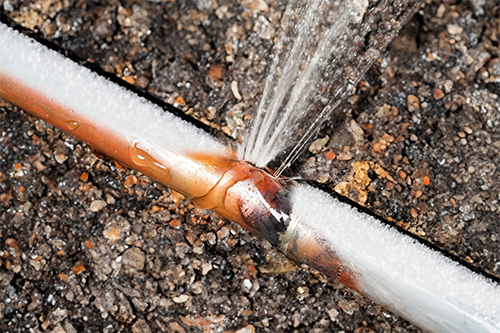NJ's Finest Water Mitigation Company | Fire Damage Cleanup & Mold Restoration
How to Handle Frozen Pipe Damage
Let’s face it—frozen pipes can cause major headaches. From leaks and flooding to structural damage (water damage) and mold, the consequences of frozen pipes can be costly and stressful. Here’s what you need to know to prevent, identify, and address frozen pipe damage effectively.

Frozen Pipes: Causes and Common Culprits
Frozen pipes occur when water inside the pipes freezes, expands, and creates pressure, eventually causing the pipe to burst. The following factors increase the likelihood of frozen pipes:
- Sudden Temperature Drops: Rapid decreases in temperature leave pipes vulnerable.
- Poor Insulation: Pipes located in unheated areas or poorly insulated walls are especially at risk.
- Thermostats Set Too Low: Lower interior temperatures can increase freezing risks, particularly in unheated spaces like basements or attics.
Certain areas and types of pipes are more prone to freezing, including:
- Pipes near exterior walls with little or no insulation.
- Outdoor pipes, such as hose bibs, sprinkler systems, and pool lines.
- Interior pipes in unheated spaces like crawlspaces, garages, and kitchen cabinets.
How to Prevent Frozen Pipes
Taking preventive measures before winter sets in can save you from costly repairs later. Here are some key tips to protect your home or business:
- Drain Outdoor Water Lines: Shut off and drain sprinkler systems, pool lines, and garden hoses.
- Insulate Exposed Pipes: Use pipe insulation or heating tape for pipes in crawl spaces, attics, and along exterior walls.
- Seal Drafts: Check windows, doors, and vents for gaps, and use weatherstripping or caulk to block cold air.
- Maintain Heat: Keep your thermostat at a consistent temperature of at least 55°F, even when you’re not home.
- Open Cabinets: Allow warm air to circulate around pipes under sinks and appliances by opening cabinet doors.
- Let Faucets Drip: During extreme cold, let faucets trickle slightly to keep water moving and reduce freezing risks.
- Close Garage Doors: If water lines run through your garage, keep the doors closed to retain heat.
What to Do if Your Pipes Freeze
Despite your best efforts, pipes can still freeze during severe weather. If this happens, follow these steps to minimize damage:
- Shut Off the Water: Locate and turn off the main water valve to prevent flooding if the pipe bursts.
- Identify the Frozen Section: Look for frost or bulging along the pipe. Pay close attention to areas near exterior walls or unheated spaces.
- Apply Heat: Use a hair dryer, heating pad, or space heater to gently thaw the frozen section. Start near the faucet and work your way back.
- Do Not Use Open Flames: Avoid propane torches, charcoal stoves, or kerosene heaters, which can be hazardous.
- Call a Professional: If you’re unable to locate the frozen area or safely thaw it, contact a licensed plumber.
- Inspect for Additional Freezing: Check all faucets and pipes for other frozen sections, as the problem may not be isolated.
How to Address Frozen Pipe Damage
If a pipe bursts, quick action is crucial to minimize water damage:
- Stop the Water Flow: Turn off the main water supply immediately.
- Remove Standing Water: Use a wet/dry vacuum, mop, or towels to clean up water quickly and prevent further damage.
- Dry Affected Areas: Use fans, dehumidifiers, and heaters to dry out floors, walls, and belongings.
- Inspect for Mold: Water damage can lead to mold growth within 24-48 hours. Be proactive in cleaning and monitoring affected areas.
- Consult Restoration Experts: If the damage is extensive, work with professionals to repair and restore your property to its original condition.
Avoiding Frozen Pipe Damage While on Vacation
If you plan to travel during the winter, take these steps to protect your property:
- Turn Off the Water Supply: Drain your water system to prevent freezing.
- Maintain Heat: Set your thermostat to at least 55°F and replace batteries if needed.
- Ask for Help: Have a trusted friend or neighbor check on your property periodically.
Why Choose JC Alvar Construction
At JC Alvar Construction, we understand the challenges that come with frozen pipe damage. Our experienced team is ready to assist New Jersey residents with repairs, restoration, and preventive solutions. We offer 24/7 emergency services to address water damage quickly and effectively.
When winter strikes, don’t let frozen pipes disrupt your life. Contact us today for reliable, professional assistance in protecting your home or business from the effects of freezing temperatures.
Stay warm, stay prepared, and let JC Alvar Construction be your trusted partner this winter!
Services We Provide
CALL TODAY
